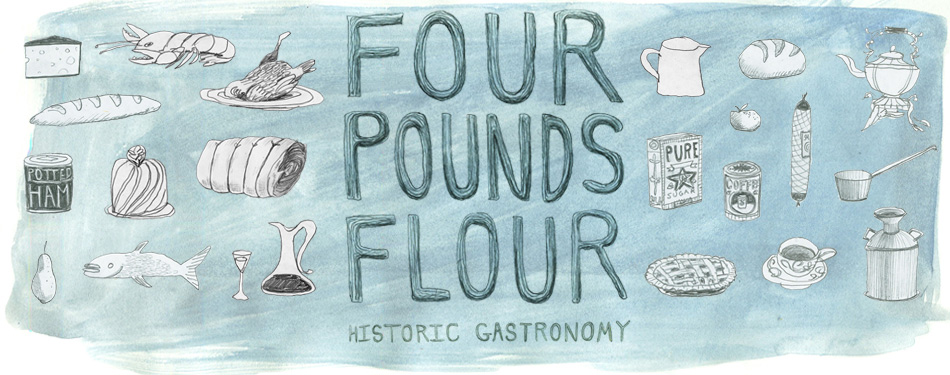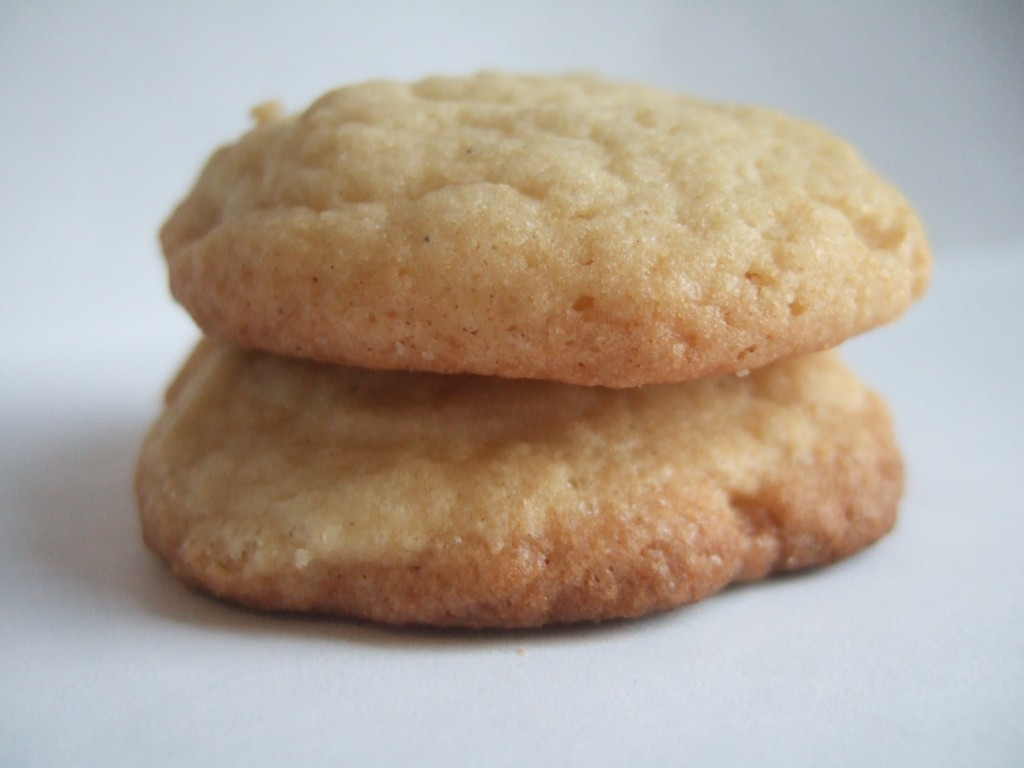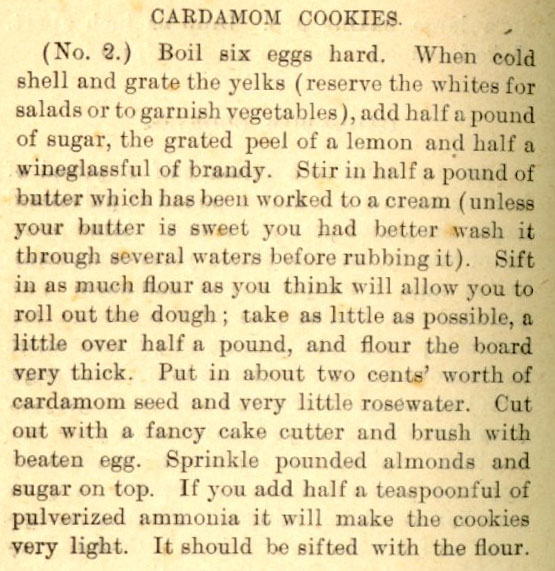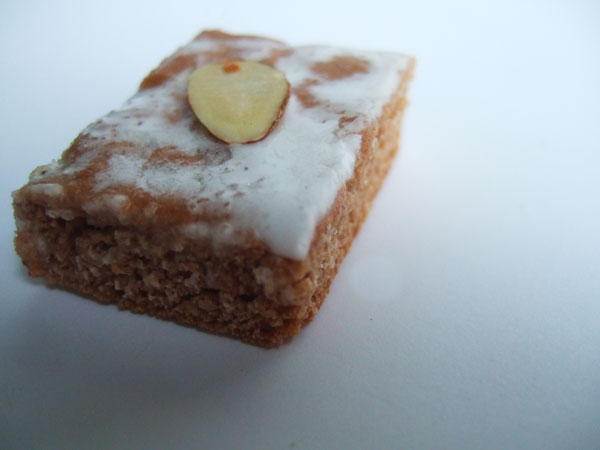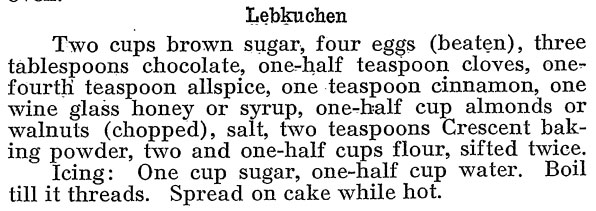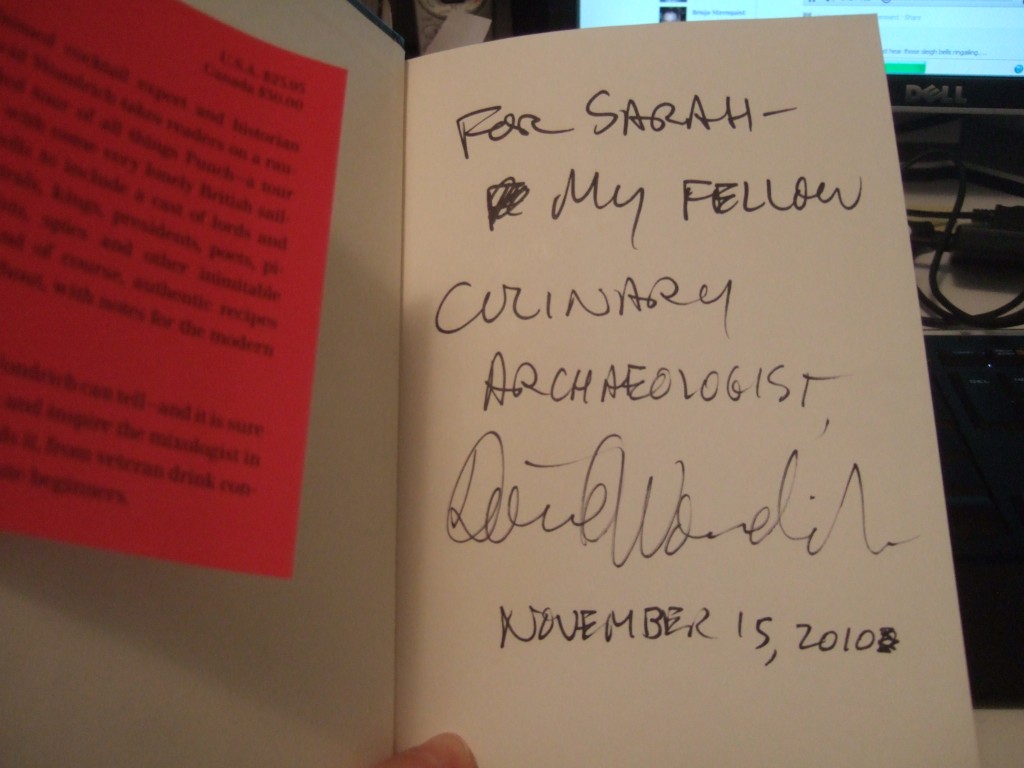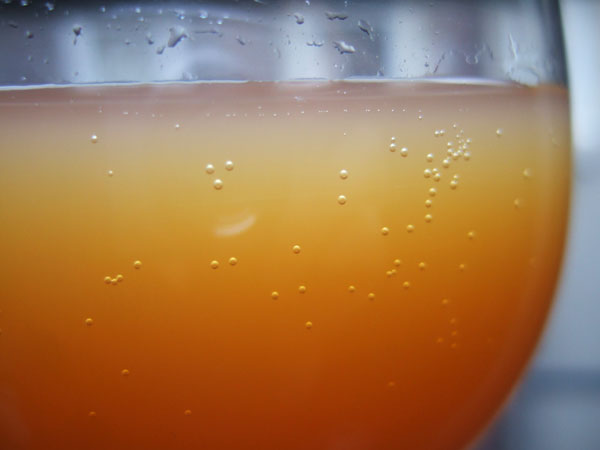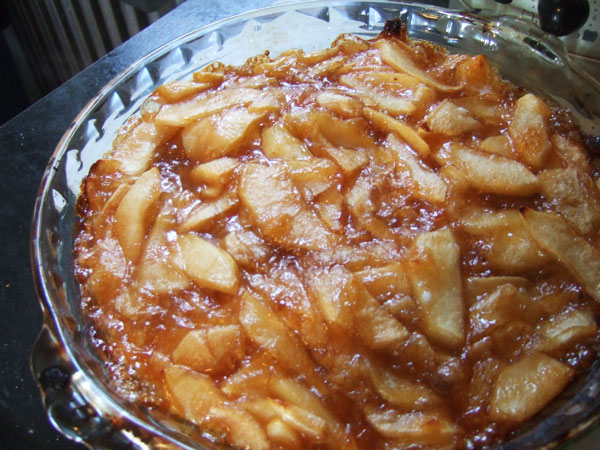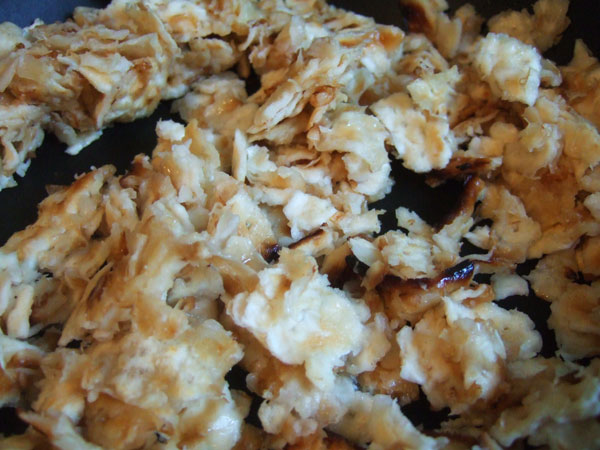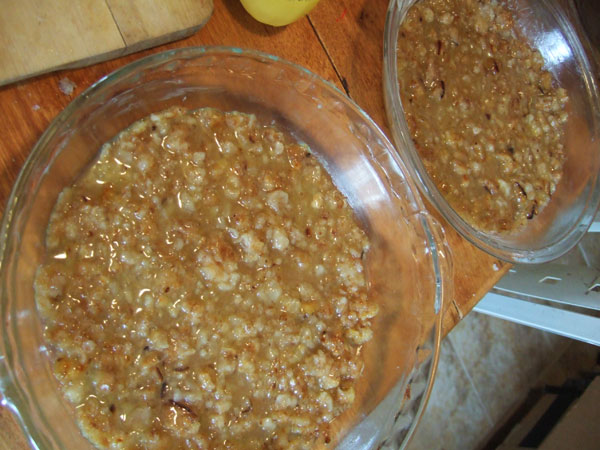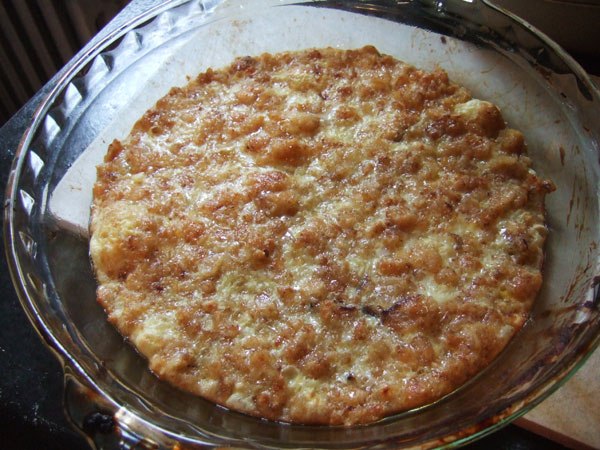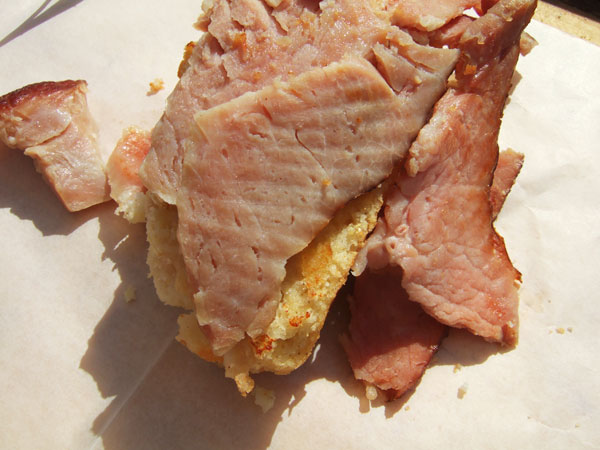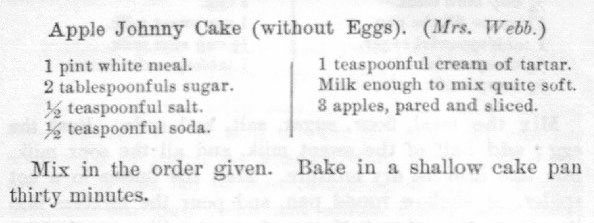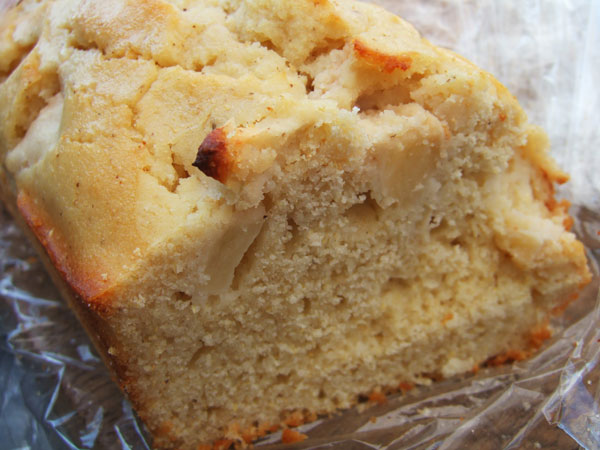I threw a Charles Dickens A Christmas Carol themed dinner party for some of my friends in Cleveland this week; more details on the full menu later. Today, I want to focus on the punch that we served, from Charles Dicken’s own recipe.
I came across the Dicken’s punch in David Wondrich’s new book, Punch!, while looking for an appropriately themed drink for the party. Coincidentally, NPR just did a piece on the same concoction, and published an interview with Wondrich:
“Dickens always made punch for friends,” Wondrich says. “Whenever he entertained, it was part of his ritual.”
Punch was already out of style by the mid-19th century, but that was part of the fun for Charles Dickens. The English novelist was “a great antiquarian,” says drink historian David Wondrich.But even for Dickens in the mid-1800s, punch was something of a throwback. “By his day,” Wondrich explains, “punch had gotten kind of old-fashioned. Queen Victoria was very opposed to the lax moral standards that the upper classes in particular had held to in her predecessor’s days. And she didn’t like their habit of getting grossly drunk on punch and champagne and wine.”So punch was out of style — but that was part of the fun. “[Dickens] was a great antiquarian,” Wondrich says. “He liked to collect all the old customs and habits of old England.” So he’d invite his friends over, concoct a big bowl of punch, and then describe the punch-making process for his guests. (read the full article here)
This punch recipe came from a letter Dickens wrote to his friend, Amelia Filloneau in 1847. The full text of the original recipe is below, followed by my modernized version (based on suggestions from both Dickens and Wondrich). It’s a standard punch recipe, the kind made better by rubbing the sugar on the rinds of the lemons and substituting green tea for the hot water.
We found the punch to be on the sweet side, so consider initially adding less sugar and then sweetening to taste. Overall, it’s a delightful treat to take to your New Year’s party tonight.
***
Charles Dicken’s Punch
Adapted from a letter from Dickens to Amelia Filloneau, 1847.
From the book Punch: The Delights and Dangers of the Flowing Bowl by David Wondrich.
Peel into a very strong common basin (which may be broken, in case of accident, without damage to the owner’s peace or pocket) the rinds of three lemons, cut very thin, and with as little as possible of the white coating between the peel and the fruit, attached. Add a double-handfull [sic] of lump sugar (good measure), a pint of good old rum, and a large wine-glass full of brandy — if it not be a large claret-glass, say two. Set this on fire, by filling a warm silver spoon with the spirit, lighting the contents at a wax taper, and pouring them gently in. [L]et it burn for three or four minutes at least, stirring it from time to Time. Then extinguish it by covering the basin with a tray, which will immediately put out the flame. Then squeeze in the juice of the three lemons, and add a quart of boiling water. Stir the whole well, cover it up for five minutes, and stir again. At this crisis (having skimmed off the lemon pips with a spoon) you may taste. If not sweet enough, add sugar to your liking, but observe that it will be a little sweeter presently. Pour the whole into a jug, tie a leather or coarse cloth over the top, so as to exclude the air completely, and stand it in a hot oven ten minutes, or on a hot stove one quarter of an hour. Keep it until it comes to table in a warm place near the fire, but not too hot. If it be intended to stand three or four hours, take half the lemon-peel out, or it will acquire a bitter taste. The same punch allowed to cool by degrees, and then iced, is delicious. It requires less sugar when made for this purpose. If you wish to produce it bright, strain it into bottles through silk. These proportions and directions will, of course, apply to any quantity.
(Doubled, for a party of 20)
Zest and juice of 6 lemons
3 cups sugar (or simple syrup)
4 cups rum (about 1 liter)
1 1/5 cups cognac (about 1/4 liter)
2 quarts boiling water
1. Pare the zest off of the lemons, being careful to get as little as the bitter white as possible. Add to a heat-safe bowl or pot, along with simple syrup. Add alcohols.
2. Gently warm a metal spoon (for example, over a stove burner). Take a spoonful from the alcohol mixture and gently light the spoon with a match or candle. Pour the spoonful of flaming liqour back into the larger bowl. “Let burn three or four minutes, stirring it from time to time.” Extinguish flame by covering the bowel with a tray or lid.
3. Squeeze the lemon and add the juice to the punch, being careful not to add any seeds, or to strain them out immediately. Add boiling water.
4. Taste; if not sweet enough, add additional sugar. Warm over a stove top burner or hotplate on low for fifteen minutes before serving.
